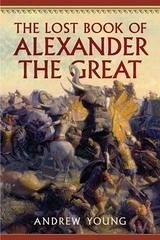
The Memoirs of Alexander Herzen, Parts I and II (eBook, ePUB)
Versandkostenfrei!
Sofort per Download lieferbar
1,99 €
inkl. MwSt.
Weitere Ausgaben:

PAYBACK Punkte
0 °P sammeln!
"The Memoirs of Alexander Herzen, Parts I and II" by Aleksandr Herzen and translated by J. D. Duff takes you into the fascinating life of Aleksandr Herzen. Herzen is known as the "father of Russian socialism" and as one of the main fathers of agrarian populism in the country. His voice helped foster change in the territory and his story is one worth remembering. Duff does Herzen justice with a faithful translation.
Dieser Download kann aus rechtlichen Gründen nur mit Rechnungsadresse in A, B, BG, CY, CZ, D, DK, EW, E, FIN, F, GR, H, IRL, I, LT, L, LR, M, NL, PL, P, R, S, SLO, SK ausgeliefert werden.













